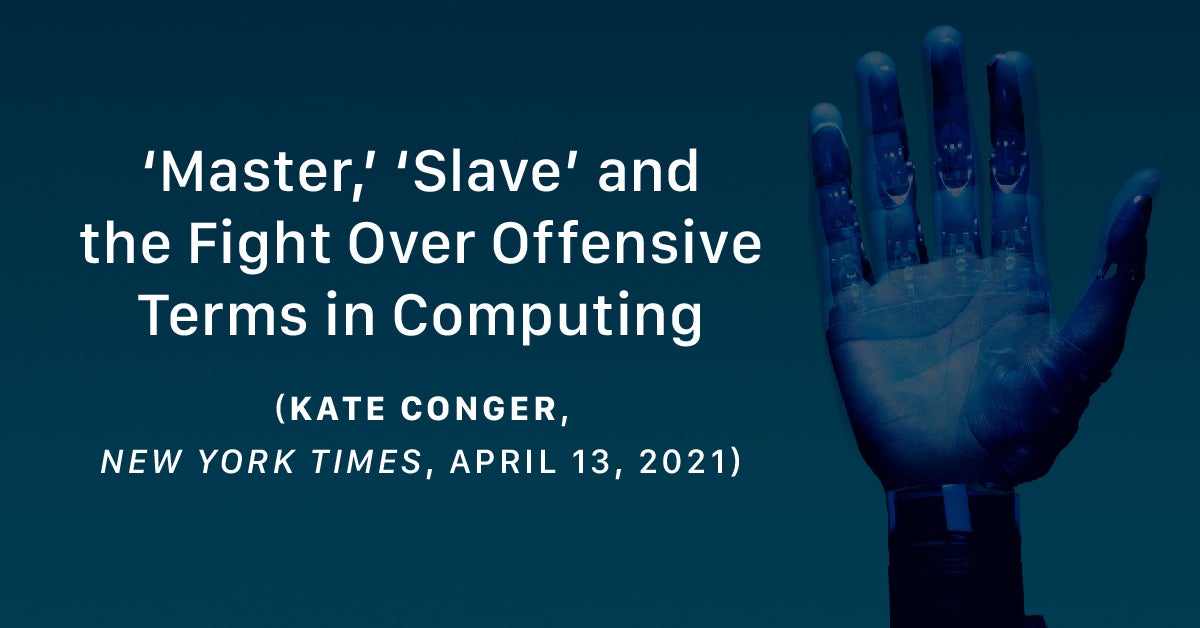AgStack Foundation will build and sustain the global data infrastructure for food and agriculture to help scale digital transformation and address climate change, rural engagement and food and water security
SAN FRANCISCO, Calif., May 5, 2021 – The Linux Foundation, the nonprofit organization enabling mass innovation through open source, today announced the launch of the AgStack Foundation, the open source digital infrastructure project for the world’s agriculture ecosystem. AgStack Foundation will improve global agriculture efficiency through the creation, maintenance and enhancement of free, reusable, open and specialized digital infrastructure for data and applications.
Founding members and contributors include leaders from both the technology and agriculture industries, as well as across sectors and geographies. Members and partners include Agralogics, Call for Code, Centricity Global, Digital Green, Farm Foundation, farmOS, HPE, IBM, Mixing Bowl & Better Food Ventures, NIAB, OpenTeam, Our Sci, Produce Marketing Association, Purdue University / OATS & Agricultural Informatics Lab, the University of California Agriculture and Natural Resources (UC-ANR) and University of California Santa Barbara SmartFarm Project.
“The global Agriculture ecosystem desperately needs a digital makeover. There is too much loss of productivity and innovation due to the absence of re-usable tools and data. I’m excited to lead this community of leaders, contributors and members – from across sectors and countries – to help build this common and re-usable resource – AgStack – that will help every stakeholder in global agriculture with free and open digital tools and data,” said Sumer Johal, Executive Director of AgStack.
Thirty-three percent of all food produced is wasted, while nine percent of the people in the world are hungry or undernourished. These societal drivers are compounded with legacy technology systems that are too slow and inefficient and can’t work across the growing and more complex agricultural supply chain. AgStack will use collaboration and open source software to build the 21st century digital infrastructure that will be a catalyst for innovation on new applications, efficiencies and scale.
AgStack consists of an open repository to create and publish models, free and easy access to public data, interoperable frameworks for cross-project use and topic-specific extensions and toolboxes. It will leverage existing technologies such as agriculture standards (AgGateway, UN-FAO, CAFA, USDA and NASA-AR); public data (Landsat, Sentinel, NOAA and Soilgrids; models (UC-ANR IPM), and open source projects like Hyperledger, Kubernetes, Open Horizon, Postgres, Django and more.
“We’re pleased to provide the forum for AgStack to be built and to grow,” said Mike Dolan, general manager and senior vice president of projects at the Linux Foundation. “It’s clear that by using open source software to standardize the digital infrastructure for agriculture, that AgStack can reduce cost, accelerate integration and enable innovation. It’s amazing to see industries like agriculture use open source principles to innovate.”
For more information about AgStack, please visit: http://www.agstack.org
Member/Partner Statements
Call for Code
“Through Call for Code and IBM’s tech-for-good programs, we’ve seen amazing grassroots innovation created by developers who build solutions to address local farming issues that affect them personally,” said Daniel Krook, IBM CTO for Call for Code. “As thriving, sustainable open source projects hosted at the Linux Foundation, applications like Agrolly and Liquid Prep have access to a strong ecosystem of partners and will be able to accelerate their impact through a shared framework of open machine learning models, data sets, libraries, message formats, and APIs such as those provided by AgStack.”
Centricity Global
“Interoperability means working together and open source has proven to be the most practical means of doing so. Centricity Global looks forward to bringing our teams, tools and applications to the AgStack community and to propelling projects that deliver meaningful value long-term,” said Drew Zabrocki, Centricity Global. “Now is the time to get things done. The docking concept at AgStack is a novel way to bring people and technology together under a common, yet sovereign framework; I see great potential for facilitating interoperability and data sovereignty in a way that delivers tangible value on the farm forward across the supply value chain.”
Digital Green
“The explosion of agri-tech innovations from large companies to startups to governments to non-profits represents a game changer for farmers in both the Global South and North. At the same time, it’s critical that we build digital infrastructure that ensures that the impact of these changes enables the aspirations of those most marginalized and builds their resilience, particularly in the midst of climate change. We’re excited about joining hands with AgStack with videos produced by & for farmers and FarmStack, a secure data sharing protocol, that fosters community and trust and puts farmers back in the center of our food & agricultural system,” said Rikin Gandhi, Co-founder and Executive Director.
Farm Foundation
“The advancements in digital agriculture over the past 10 years have led to more data than ever before—data that can be used to inform business decisions, improve supply and demand planning and increase efficiencies across stakeholders. However, the true potential of all that data won’t be fully realized without achieving interoperability via an open source environment. Interoperable data is more valuable data, and that will lead to benefits for farmers and others throughout the food and ag value chain,” said Martha King, Vice President of Programs and Projects, Farm Foundation.
farmOS
“AgStack’s goal of creating a shared community infrastructure for agricultural datasets, models, frameworks, and tools fills a much-needed gap in the current agtech software landscape. Making these freely available to other software projects allows them to focus on their unique value and build upon the work of others. We in the farmOS community are eager to leverage these shared resources in the open source record keeping tools we are building together,” said Michael Stenta, founder and lead developer, farmOS.
HPE
“The world’s food supply needs digital innovation that currently faces challenges of adoption due to the lack of a common, secure, community-maintained digital infrastructure. AgStack – A Linux Foundation’s Project, is creating this much needed open source digital infrastructure for accelerating innovation. We at Hewlett Packard Enterprise are excited about contributing actionable insights and learnings to solve data challenges that this initiative can provide and we’re committed to its success!” said Janice Zdankus, VP, Innovation for Social Impact, Office of the CTO, Hewlett Packard Enterprise.
Mixing Bowl & Better Food Ventures
“There are a lot of people talking about interoperability; it is encouraging to see people jump in to develop functional tools to make it happen. We share the AgStack vision and look forward to collaborating with the community to enable interoperability at scale,” said Rob Trice, Partner, The Mixing Bowl & Better Food Ventures.
NIAB
“Climate change is a global problem and agriculture needs to do its part to reduce greenhouse gas emissions during all stages of primary production. This requires digital innovation and a common, global, community-maintained digital infrastructure to create the efficient, resilient, biodiverse and low-emissions food production systems that the world needs. These systems must draw on the best that precision agriculture has to offer and aligned innovations in crop science, linked together through open data solutions. AgStack – A Linux Foundation Project, is creating this much needed open-source digital infrastructure for accelerating innovation. NIAB are excited to join this initiative and will work to develop a platform that brings together crop and data science at scale. As the UK’s fastest growing, independent crop research organization NIAB provides crop science, agronomy and data science expertise across a broad range of arable and horticultural crops,” said Dr Richard Harrison, Director of NIAB Cambridge Crop Research.
OpenTEAM
“Agriculture is a shared human endeavor and global collaboration is necessary to translate our available knowledge into solutions that work on the ground necessary to adapt and mitigate climate change, improve livelihoods, and biodiversity as well as the produce of abundant food fiber and energy. Agriculture is at the foundation of manufacture and commerce and AgStack represents a collaborative effort at a scale necessary to meet the urgency of the moment and unlock our shared innovative capacity through free, reusable, open digital infrastructure. OpenTEAM is honored to join with the mission to equip producers with tools that both support data sovereignty for trusted transactions while also democratizing site specific agricultural knowledge regardless of scale, culture or geography,” said Dr. Dorn Cox, project lead and founder of Open Technology Ecosystem for Agricultural Management and research director for Wolfe’s Neck Center for Agriculture & the Environment.
Our Sci
“AgStack provides a framework for a scalable base of open source software, and the shared commitment to keep it alive and growing. We’re excited to see it succeed!” said Greg Austic, owner, Our Sci.
Produce Marketing Association
“The digitization of data will have tremendous benefits for the Fresh Produce and Floral industry in the areas of traceability, quality management, quality prediction and other efficiencies through supply chain visibility. The key is challenges to adoption is interoperability and the development of a common, community-maintained digital infrastructure. I am confident that AgStack – A Linux Foundation’s Project, can create this much needed open-source digital infrastructure for accelerating innovation. We at Produce Marketing Association are excited about this initiative and we are committed to its success,” said Ed Treacy, VP of Supply Chain and Sustainability.
Purdue University
“We need fundamental technical infrastructure to enable open innovation in agriculture, including ontologies, models, and tools. Through the AgStack Project, the Linux Foundation will provide valuable cohesion and development capacity to support shared, community-maintained infrastructure. At the Agricultural Informatics Lab, we’re committed to enabling resilience food and agricultural systems through deliberate design and development of such infrastructure,” said Ankita Raturi, Assistant Professor, Agricultural Informatics Lab, Purdue University.
“True interoperability requires a big community and we’re excited to see the tools that we’ve brought to the open-source ag community benefiting new audiences. OATS Center at Purdue University looks forward to docking the Trellis Framework for supply chain, market access and regulatory compliance through AgStack for the benefit of all,” said Aaron Ault, Co-Founder OATS Center at Purdue University.
UC Davis
“Translating 100+ years of UC agricultural research into usable digital software and applications is a critical goal in the UC partnership with the AgStack open source community. We are excited about innovators globally using UC research and applying it to their local crops through novel digital technologies,” said Glenda Humiston, VP of Agriculture and Natural Resources, University of California.
“Artificial Intelligence and Machine Learning are critical to food and agriculture transformation, and will require new computational models and massive data sets to create working technology solutions from seed to shelf. The AI Institute for Next Generation Food Systems is excited to partner with the AgStack open source community to make our work globally available to accelerate the transformation,” said Ilias Tagkopoulos, Professor, Computer Science at UC Davis and Director, AI Institute of Next Generation Food Systems.
About the Linux Foundation
Founded in 2000, the Linux Foundation is supported by more than 1,000 members and is the world’s leading home for collaboration on open source software, open standards, open data, and open hardware. Linux Foundation’s projects are critical to the world’s infrastructure including Linux, Kubernetes, Node.js, and more. The Linux Foundation’s methodology focuses on leveraging best practices and addressing the needs of contributors, users and solution providers to create sustainable models for open collaboration. For more information, please visit us at linuxfoundation.org.
###
The Linux Foundation has registered trademarks and uses trademarks. For a list of trademarks of The Linux Foundation, please see our trademark usage page: https://www.linuxfoundation.org/trademark-usage. Linux is a registered trademark of Linus Torvalds.
Media Contact
Jennifer Cloer
for Linux Foundation
503-867-2304
jennifer@storychangesculture.com
The post Linux Foundation Launches Open Source Digital Infrastructure Project for Agriculture, Enables Global Collaboration Among Industry, Government and Academia appeared first on Linux Foundation.



